The AMD Ryzen Threadripper 1950X and 1920X Review: CPUs on Steroids
by Ian Cutress on August 10, 2017 9:00 AM ESTCPU Legacy Tests
Our legacy tests represent benchmarks that were once at the height of their time. Some of these are industry standard synthetics, and we have data going back over 10 years. All of the data here has been rerun on Windows 10, and we plan to go back several generations of components to see how performance has evolved.
All of our benchmark results can also be found in our benchmark engine, Bench.
3D Particle Movement v1
3DPM is a self-penned benchmark, taking basic 3D movement algorithms used in Brownian Motion simulations and testing them for speed. High floating point performance, MHz and IPC wins in the single thread version, whereas the multithread version has to handle the threads and loves more cores. This is the original version, written in the style of a typical non-computer science student coding up an algorithm for their theoretical problem, and comes without any non-obvious optimizations not already performed by the compiler, such as false sharing.
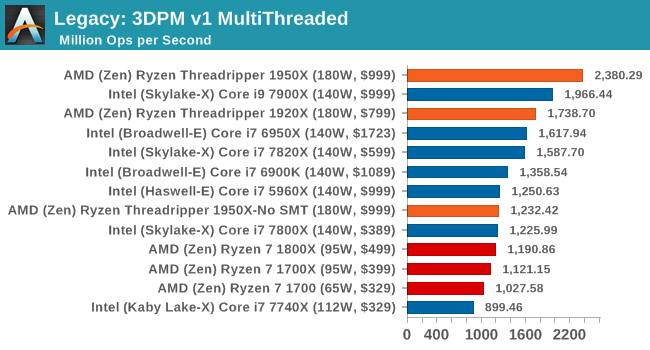
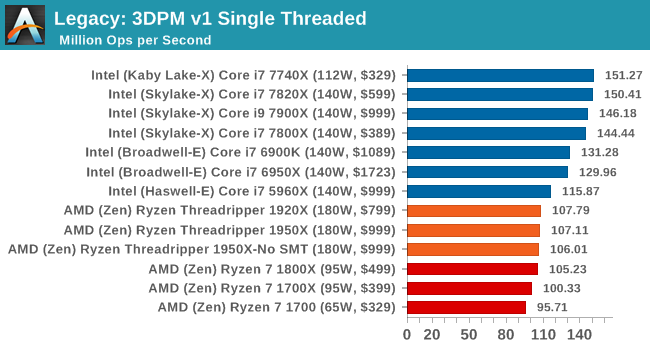
CineBench 11.5 and 10
Cinebench is a widely known benchmarking tool for measuring performance relative to MAXON's animation software Cinema 4D. Cinebench has been optimized over a decade and focuses on purely CPU horsepower, meaning if there is a discrepancy in pure throughput characteristics, Cinebench is likely to show that discrepancy. Arguably other software doesn't make use of all the tools available, so the real world relevance might purely be academic, but given our large database of data for Cinebench it seems difficult to ignore a small five minute test. We run the modern version 15 in this test, as well as the older 11.5 and 10 due to our back data.
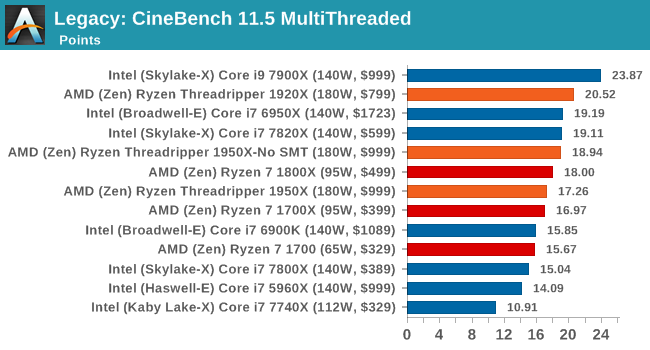
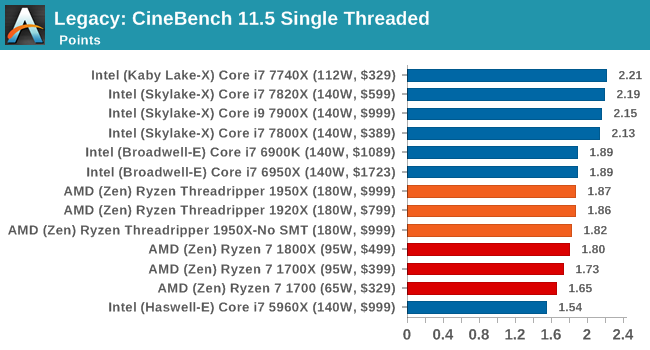
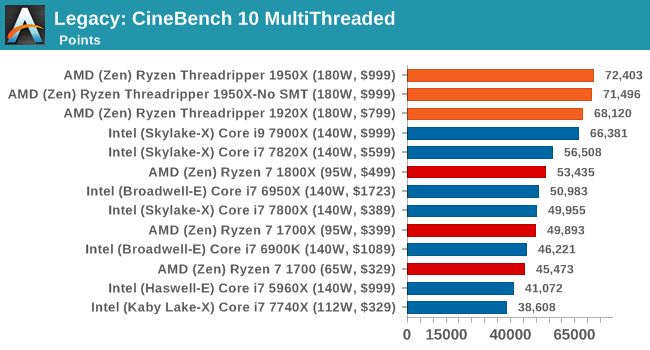
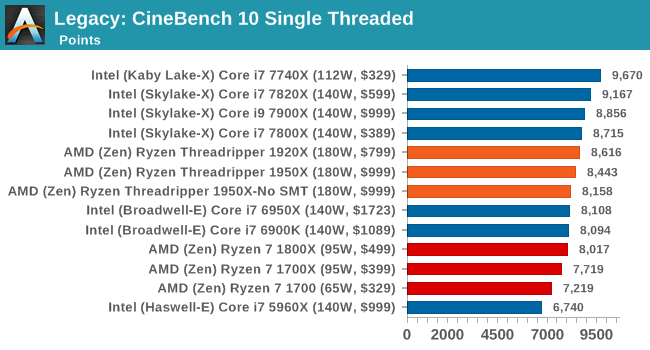
x264 HD 3.0
Similarly, the x264 HD 3.0 package we use here is also kept for historic regressional data. The latest version is 5.0.1, and encodes a 1080p video clip into a high-quality x264 file. Version 3.0 only performs the same test on a 720p file, and in most circumstances the software performance hits its limit on high-end processors, but still works well for mainstream and low-end. Also, this version only takes a few minutes, whereas the latest can take over 90 minutes to run.
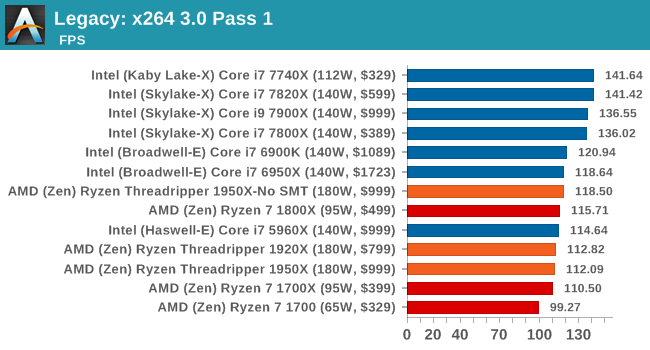
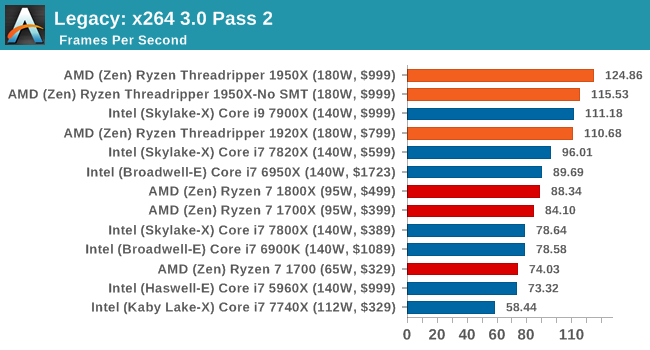
The 1950X: the first CPU to score higher on the 2nd pass of this test than it does on the first pass.










347 Comments
View All Comments
Notmyusualid - Saturday, August 12, 2017 - link
*after my 13....FFS - edit button please!
ComputerGuy2006 - Thursday, August 10, 2017 - link
I don't know how many people would care... But I always felt having something like stockfish tested could be interesting in these types of benchmarks.Netmsm - Thursday, August 10, 2017 - link
@Ian Cutress, If it's possible, please do some benchmarks about multitasking performance.Makaveli - Thursday, August 10, 2017 - link
I know alot of hardwork and long hours went into this so I want to thank you Ian for taking the time. Minus all the bickering and whining in the comment some good points were made. Been reading this site since 2000 and appreciate all the knowledge it has given me.Ian Cutress - Thursday, August 10, 2017 - link
Thanks! :)psychickitten - Thursday, August 10, 2017 - link
Any chance of including vray benchmarks (both cpu and gpu) in future reviews? Vray has recently released a vray benchmark which is free to download.Ian Cutress - Thursday, August 10, 2017 - link
Check some of the comments above. Apparently, we have too many rendering benchmarks according to other users.fallaha56 - Thursday, August 10, 2017 - link
why is XFR not turned on here?and what respected rig-builder doesn't turn on XMP profiles...
come on guys, this is poor
Ian Cutress - Thursday, August 10, 2017 - link
XFR is enabled by default.Outlander_04 - Thursday, August 10, 2017 - link
Intels 140 watt chips pull 149 watts.AMDs 180 watt chips pull 176 watts